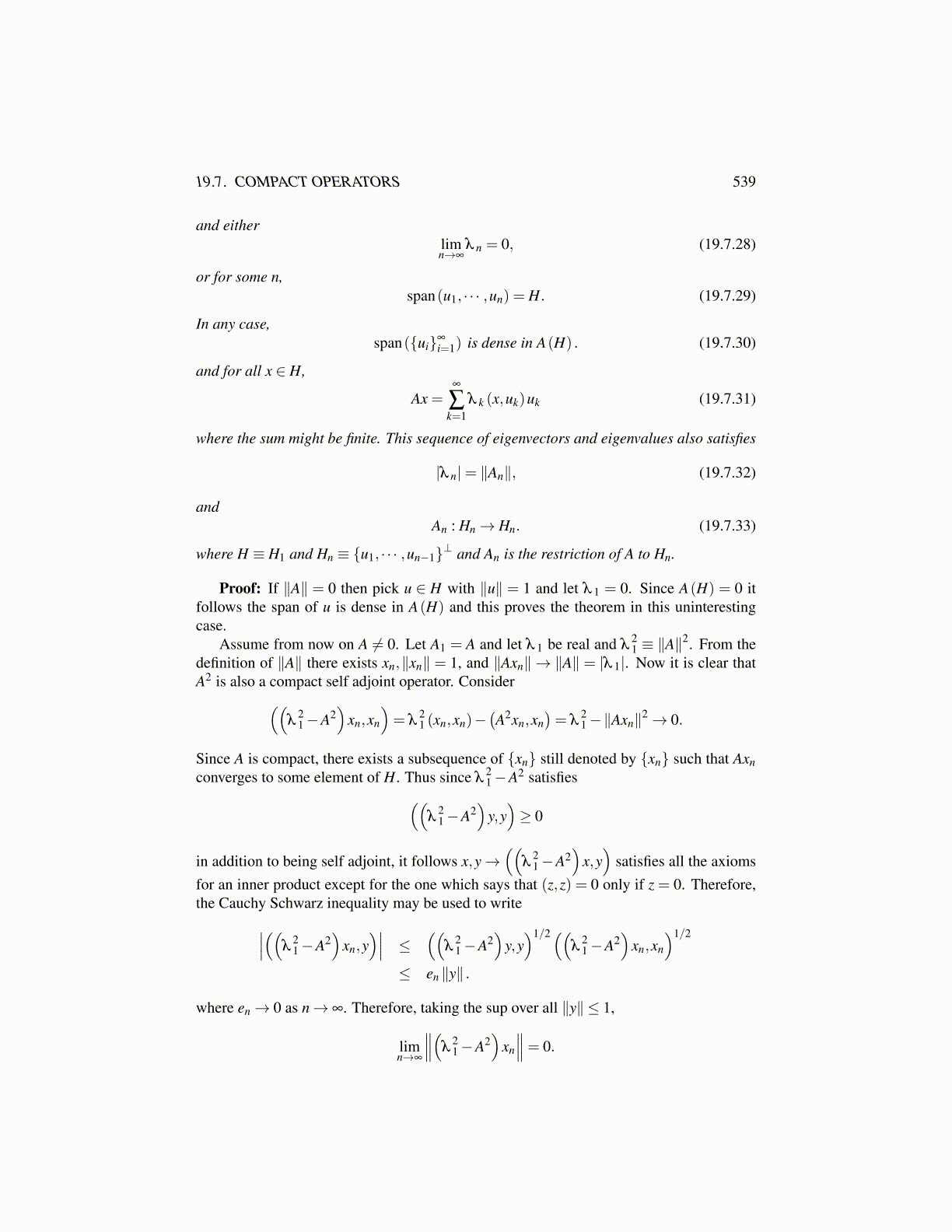
19.7. COMPACT OPERATORS 539
and eitherlimn→∞
λ n = 0, (19.7.28)
or for some n,span(u1, · · · ,un) = H. (19.7.29)
In any case,span({ui}∞
i=1) is dense in A(H) . (19.7.30)
and for all x ∈ H,
Ax =∞
∑k=1
λ k (x,uk)uk (19.7.31)
where the sum might be finite. This sequence of eigenvectors and eigenvalues also satisfies
|λ n|= ∥An∥, (19.7.32)
andAn : Hn→ Hn. (19.7.33)
where H ≡ H1 and Hn ≡ {u1, · · · ,un−1}⊥ and An is the restriction of A to Hn.
Proof: If ∥A∥ = 0 then pick u ∈ H with ∥u∥ = 1 and let λ 1 = 0. Since A(H) = 0 itfollows the span of u is dense in A(H) and this proves the theorem in this uninterestingcase.
Assume from now on A ̸= 0. Let A1 = A and let λ 1 be real and λ21 ≡ ∥A∥
2. From thedefinition of ∥A∥ there exists xn,∥xn∥ = 1, and ∥Axn∥ → ∥A∥ = |λ 1|. Now it is clear thatA2 is also a compact self adjoint operator. Consider((
λ21−A2
)xn,xn
)= λ
21 (xn,xn)−
(A2xn,xn
)= λ
21−∥Axn∥2→ 0.
Since A is compact, there exists a subsequence of {xn} still denoted by {xn} such that Axnconverges to some element of H. Thus since λ
21−A2 satisfies((
λ21−A2
)y,y)≥ 0
in addition to being self adjoint, it follows x,y→((
λ21−A2
)x,y)
satisfies all the axiomsfor an inner product except for the one which says that (z,z) = 0 only if z = 0. Therefore,the Cauchy Schwarz inequality may be used to write∣∣∣((λ
21−A2
)xn,y
)∣∣∣ ≤ ((λ
21−A2
)y,y)1/2((
λ21−A2
)xn,xn
)1/2
≤ en ∥y∥ .
where en→ 0 as n→ ∞. Therefore, taking the sup over all ∥y∥ ≤ 1,
limn→∞
∥∥∥(λ21−A2
)xn
∥∥∥= 0.